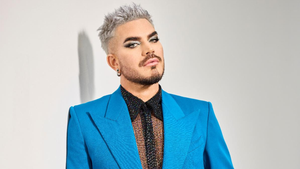"I remember the first time someone called me 'gay' in elementary school with a negative connotation," wrote Benjamin Fredell in a moving coming-out essay he penned for Outsports, which published today. "I remember it felt like I was being singled out, that it felt like I was being called 'gay' more than any of my peers at the time, so I started to harden."
In the essay, the 19-year-old freshman at the University of Washington-Tacoma recounts painful details of his life as a closeted jock -- and how the toxic masculinity that prevails in the sports world eventually pushed him out of it.
"It wasn't the hockey community that introduced me to homophobia, but rather it was the environment that helped reinforce themes that built and toughened my self-hatred," writes Fredell. "I had never experienced the word 'f****t' being said so many times before entering a youth hockey locker room."
He adds that, although not all those who are involved in sports are rampant homophobes, the environment certainly normalizes and encourages this type of hatred.
"I don't want to say it was everyone and I don't even want to say that it wasn't me, because at times it definitely was," he admits. "I think that the fairest thing to say is that it was occurring. And I was so engrossed in the sport that I overlooked the side effects of normalizing these forms of aggression. I even started to overlook what it would mean to hide who I really was."
In addition, Fredell bravely and candidly delves into many of the difficult and not-often-discussed issues that directly affect LGBTQ+ youth -- including bullying, depression, and self-harming thoughts or behaviors. He explains how his struggles climaxed when a career-making opportunity coincided with his darkest inner-thoughts.
"Eventually, I started to hate the way I felt and thought that maybe there was something I could do about it," recalls Fredell of when he began practicing physical self-harm. "It felt better that way. It was a kind of pain that I understood. A manly, physical pain. I'd show up to school with bruises on my face and say it was from hockey."
"The solution came when I got the option to go to California to play hockey for an elite youth team in Los Angeles [the L.A. Jr. Kings]," say Fredell. "I thought that this would be my fresh start, and if it didn't work out, I'd just kill myself."
Fortunately, though he was still struggling, Fredell says things did start to improve once in he was California -- partially due to the area's generally less-homophobic attitudes, even within sports. But it was really "one singular event that saved me," he says. Fredell explains how a friend's suicide attempt back home was a harsh wake-up call that he, too, needed help. Shortly after, he quit the team and moved back home, began going to therapy, and slowly started coming out to friends and family over the next few months.
Fredell also courageously touches on another very important aspect of being a queer or questioning young person -- that it's OK to not have your sexuality all figured out yet and notes he's been dating a transgender girl he knew from high school. "I'm still just a scared kid, but at least now I exist in a realm where I feel safe to be myself."
"If a time machine were built, I would go back and tell myself that it's just a game, despite all that everyone in the hockey community will tell you," he concludes. "It's not worth ruining your mental health over. And you are not alone. And if someone asks if you are gay, just look at them coolly and say, 'Yeah, so what?'"
If you are a LGBTQ+ or questioning young person who is struggling with similar issues, organizations like The Trevor Project, It Gets Better Project, and your local LGBTQ+ Center are there to help you through it.
RELATED | Hockey Player, Brock Weston, Comes Out as Gay After Rumors

























































